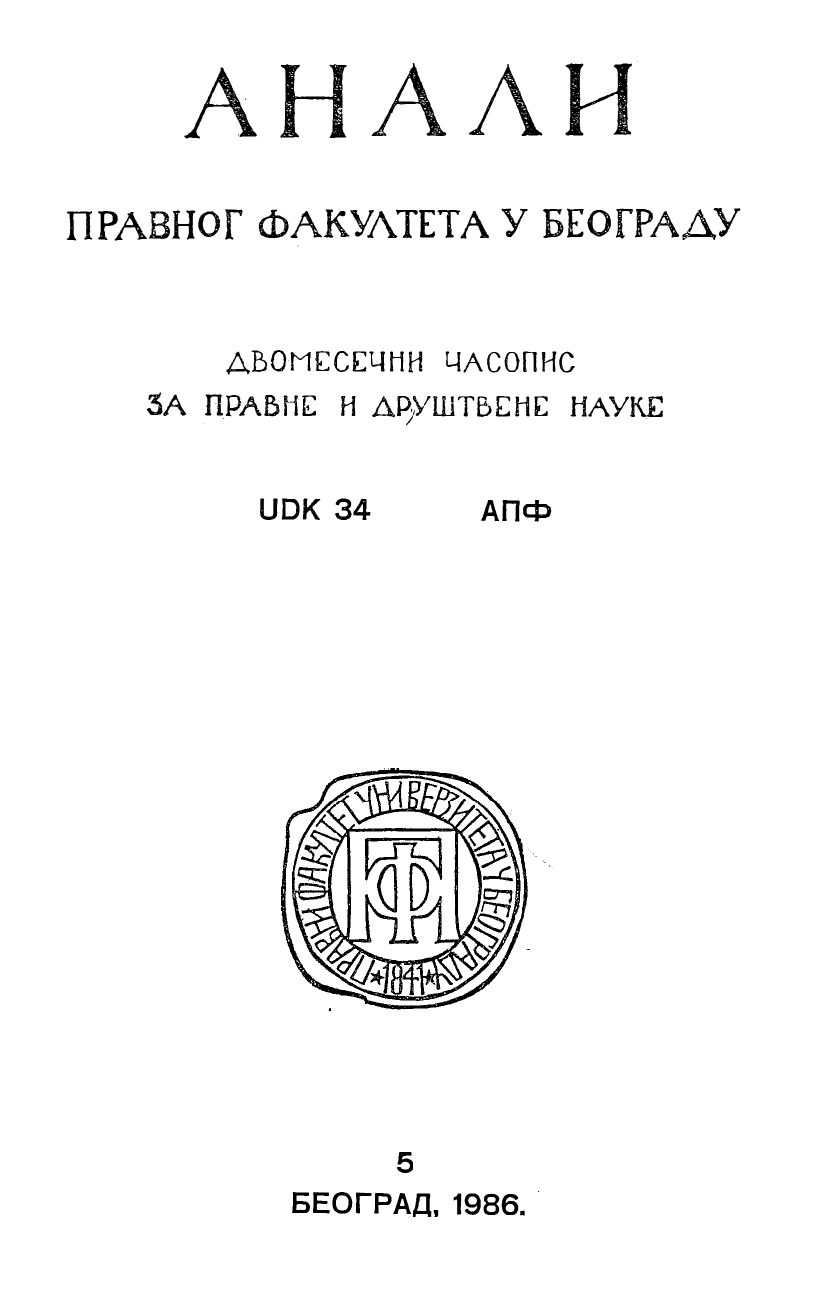ПРАВНИ АСПЕКТИ ЕКСТРАКОРПОРАЛНЕ ФЕРТИЛИЗАЦИЈЕ
LEGAL ASPECTS OF EXTRACORPORAL FERTILIZATION
Author(s): Olga Cvejić JančićSubject(s): Law, Constitution, Jurisprudence, Criminal Law, Civil Law
Published by: Правни факултет Универзитета у Београду
Summary/Abstract: The present paper deals with legal aspects of extracorporal fertilization, proceeding from criminal-, civil- and family laws. The author states that criminal legislature of our country does not regulate this question for the time being, 1. e. it does not anticipate any criminal offence by which some mistakes or abuses in permorming in vitro fertilization would be sanctioned, nor it anticipates prohibited manipulations (of a genetic or similar nature) which are not excluded in these procedures. The author points out at some provisions of the Law on Health Measures to Exercise the Right to Make Free Decision on Giving Birth to Children in Slovenia and Croatia, which prescribe punishments for violations that could be done by artificial insemination in the strict sense (homologous or heterologous) which could be, according to the author, analogy ously to applied in vitro fertilization as well, regarded by him as an artifical fertilization in the broader sense. In addition, it is emphasized that, except for the SR of Slovenia and Croatia, other federal units have not sanctioned these questions even by the law on violations. Only unauthorized revealment of professional secret is anticipated as criminal offence by the laws of these republics and provinces, whereas only Slovenia and Croatia explicitly provide what a professional secret is in the procedure of artificial insemination in the strict sense. Regarding civil law actions, the author refers to the general provisions of the Law on Obligation Relations. Finally, the question is treated of determining and denying paternity and maternity of a child conceived in an artificial manner. Some provisions related to determining paternity of a child conceived by the artificial homologous or heterologous insemination have been anticipated de lege lata, and the author considers that they could be applied by analogy to in vitro fertilization. The author mentions some open, problems particularly in view of determining maternity in case of some deviations in the procedure of in vitro fertilization.
Journal: Анали Правног факултета у Београду
- Issue Year: 34/1986
- Issue No: 5
- Page Range: 480-489
- Page Count: 10
- Language: Serbian

